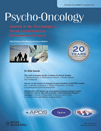Validation of the Mexican–Spanish version of the EORTC QLQ-C15-PAL questionnaire for the evaluation of health-related quality of life in patients on palliative care
Abstract
Background: Health-related quality of life (HRQL) is an important outcome in oncology, particularly in the palliative care setting. The European Organization for Research and Treatment of Cancer (EORTC) QLQ-C15-PAL questionnaire is a brief version of QLQ-C30. Our aim is to validate the Mexican–Spanish version of the QLQ-C15-PAL questionnaire to measure HRQL in patients with terminal cancer.
Methods: Consecutive patients with biopsy proven cancer were included in the study. All were treated in a cancer center in Mexico and were referred for palliative care because of far-advanced, recurrent or metastatic cancer. QLQ-C15-PAL questionnaire was applied in the first visit to the Unit and palliative care was offered to all patients depending on their specific necessities.
Results: Eighty-three patients were enrolled in this study (mean age, 61.2 years). Compliance rates were high; all patients completed to the questionnaire in <20 min and the instrument was well-received. Five missing values in five different items were found. QLQ-C15 scales distinguished between other clinically distinct groups of patients. Multi-trait scaling analysis demonstrated good convergent and discriminant validity. Cronbach's α coefficients were >0.7 in three of four multi-item scales (0.67 in the fourth). Test–retest scores were consistent in some scales, while improve or worsen in others. Better Global health, Dyspnea, Insomnia, Fatigue and Appetite scales were associated with longer survival.
Conclusion: The Mexican–Spanish version of the EORTC QLQ-C15-PAL questionnaire is reliable and valid for HRQL measurement in patients with terminal cancer, and is appropriate for use in clinical trials of Mexican patients. Copyright © 2010 John Wiley & Sons, Ltd.




